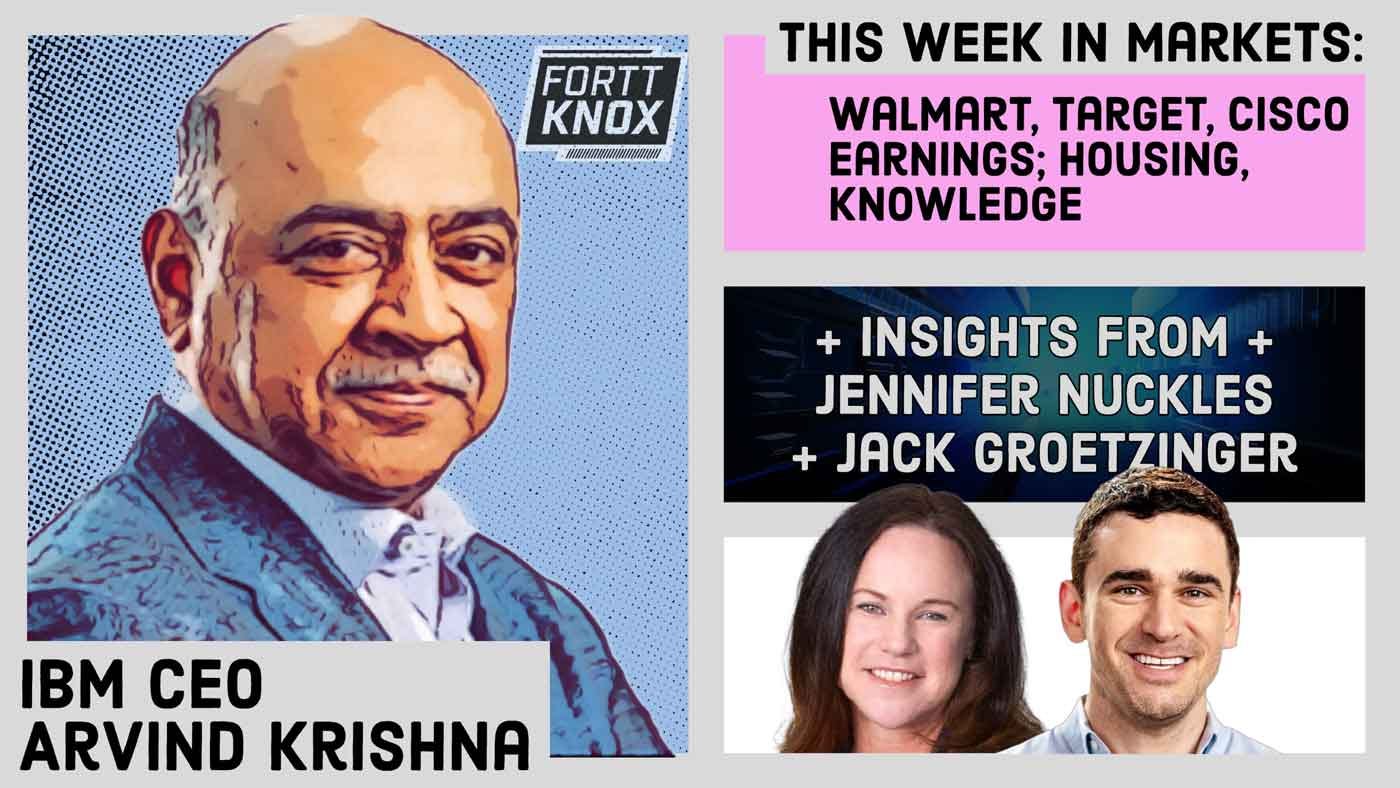Retail Sales Pressure Mounts: Plus, Enterprise AI and Healthtech Innovations
Arvind Krishna of IBM, Jennifer Nuckles of R-Zero, Jack Groetzinger of SeatGeek
Top of Mind
April retail sales were weaker than expected, the Commerce Department reported Tuesday (up .4% over March vs. .8% expected), with consumers spending a little more than a year ago but actually getting less. (That's because while spending was up 1.6% from 2022, inflation was up 4.9%.) It's the latest data point in a "meh" economy where the Federal Reserve has been trying to walk a tightrope: hike interest rates enough to slow the economy and tame inflation, but not so much that it tanks the economy and triggers a recession. While the retail sales data is backward-looking, corporate earnings guidance is predictive. That's why this week's retail earnings reports from Walmart and Target are especially important. Home Depot said consumer spending is soft, especially in bigger-ticket items like grills and patio furniture. Of course, we have to balance this with the knowledge that consumers have been spending less on things (goods) and more on experiences (services). So we'll also have to see how Memorial Day travel and summer vacation spending hold up.
How are housing costs affecting the consumer? This week we'll get fresh data to help fill out that picture. The National Association of Home Builders will report new home sales, and we'll also get a report on existing home sales. A key difference between the two these days is that home prices haven't fallen as much as one might have expected, given the economic slowdown; a big part of the reason is that with interest rates so much higher than a few years ago, there's little incentive to sell a home and then buy another with an expensive mortgage. That's kept the inventory of existing homes low, and the limited supply has kept prices high. Selling a new home is less complicated, since builders can offer incentives including lower rates. What causes things to shift? Well, maybe a sudden rise in unemployment, or just the cumulative effect of the suddenly expensive interest payments consumers face from their revolving credit.
On the Radar
NOW: Cisco's got earnings this week, which will add to our understanding of enterprise spending. But I'm more interested in unique perspective I can bring you. That's why I'm heading to ServiceNow's Knowledge 23 event in Las Vegas, where I'll speak with ServiceNow CEO Bill McDermott and Nvidia CEO Jensen Huang. I also hope to get fresh insight from SAP's CEO later today on Overtime, so tune in for that. With all the talk about AI lately, we can forget that businesses and governments still have plenty of work to get their data and processes ready for those changes. These leaders in enterprise software, chips and infrastructure should put that in perspective.
Reporter's Notebook
I was only working three days last week, as I headed to my alma mater, DePauw University, for a spring meeting of the Board of Trustees. But man, was it a packed half week. I spoke with IBM CEO Arvind Krishna from his company's Think event about how he's repositioning Watson for this AI era, and why IBM missed out on defining this period to begin with. I also spoke with Google Cloud CEO Thomas Kurian from Google I/O about the role his organization is playing in the hyperscaler battle for advantage in artificial intelligence. OpenText CEO Mark Barrenchea added some useful color on the AI topic when he explained that customers are using AI for work like evaluating contracts more quickly to make sure they contain standard provisions; he shared that in the context of the company's earnings, which came in above expectations.
On the non-public front, I spent some time with R-Zero CEO Jennifer Nuckles, whose company makes technology for cleaner air in indoor spaces (yes, there's still demand post-COVID pandemic); and SeatGeek CEO Jack Groetzinger, whose company handles ticketing and commerce for both indoor and outdoor spaces (which are seeing a lot more demand post-pandemic). And speaking of health, I got some time with Dr. Lee Hood, a legend in the healthtech space, to explore the importance of the human phenome and why he thinks it's the next big thing.


